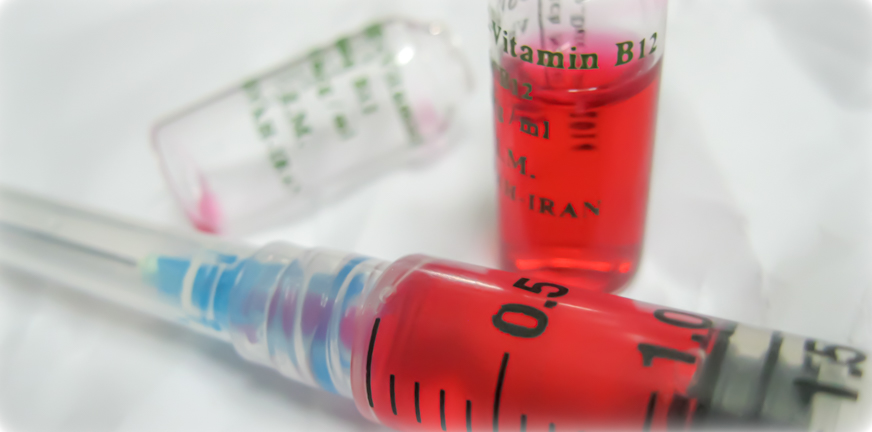Understanding Vitamin B12 Injecteren – Uses, Precautions, Side Effects

Vitamin B12 injecteren is used for treating the deficiency of Vitamin B12 and is commonly injected into the muscle by the doctor
An artificial form of vitamin B12 is called vitamin B12. Growth, cell division, blood creation, and the synthesis of proteins and tissues all depend on vitamin B12. Vitamin B12 deficiency is treated with vitamin B12 in patients suffering from pernicious anemia and other disorders. If you have Leber’s disease or are allergic to cobalt, you shouldn’t take vitamin B12 injecteren.
Vitamin B12 Injecteren
A synthetic form of vitamin B12, also known as cyanocobalamin, is found in vitamin B12 injecteren. The physician injects the shot into the muscle by a physician. The body may lose a significant amount as the person passes urine if it is injected into a vein. There are three different forms of cyanocobalamin: liquid, tablet, and capsule. There are some foods, including cereals, that are fortified with synthetic vitamin B12.
The cause of a person’s B12 deficiency will determine how frequently they need doses. A person may initially require daily injections of B12 supplements for approximately two weeks or until their symptoms subside. Should an individual’s diet be the root cause of their B12 deficiency, they might not need more shots or just need them once or twice a year. People who have a persistent disease that is creating a deficiency may need to have B12 injecteren approximately every two months.
Deficiency of Vitamin B12
Anyone exhibiting symptoms of pernicious anemia or vitamin B12 insufficiency should consult a physician. Infertility, exhaustion, palpitations, pale skin, weight loss, numbness, and tingling in the hands and feet are among the warning signs and symptoms.
These potential hazards may raise the likelihood of acquiring a vitamin B12 deficit. High alcohol intake, advanced age, pernicious anemia, Helicobacter pylori infection, atrophic gastritis (a term referring to stomach inflammation), Crohn’s disease, celiac disease, a history of gastrointestinal surgery, pancreatic insufficiency, AIDS, and certain genetic conditions that affect the absorption of vitamin B12.
Candidate for Vitamin B12 Injecteren
Only prescriptions for vitamin B12 injecteren are accepted in the event that a clinical diagnosis of low levels is made. However, because the human liver accumulates vitamin B12 throughout time, low levels are uncommon in the majority of healthy persons. If a person has autoimmune atrophic gastritis, their bodies may not create enough intrinsic factors or stomach acid. Vitamin B12 injecteren may be necessary for these individuals in order to lower their risk of deficiency and consequent pernicious anemia.
Those who have undergone gastrointestinal surgery may also require B12 injecteren if their digestive system is unable to absorb vitamin B12 effectively.
Administration & Use of Vitamin B12 Injecteren
Utilize vitamin B12 as directed by your physician. Read all drug guides or instruction sheets and abide by all guidelines on the label of your medicine. B12 injecteren vitamin is administered subcutaneously or into a muscle. You might be taught by a medical professional how to take the drug correctly on your own. If you follow a vegetarian diet, become pregnant, or breastfeed, your dosage requirements may vary. Inform your physician of any dietary or health-related changes.
When administering a child a B12 injecteren vitamin, always follow the guidelines on the medication package. The dosage for your child is based on their age, weight, food, and other variables. If you develop pernicious anemia, you should take a vitamin B12 injecteren for the rest of your life. Until your doctor instructs you otherwise, do not stop taking the medication. Irreversible nerve damage or anemia might result from an untreated vitamin B12 deficiency.
Folic acid is another treatment for pernicious anemia that aids in the maintenance of red blood cells. Vitamin B12 insufficiency cannot be treated with folic acid alone, nor does it shield the spinal cord from potential harm. Take all prescriptions exactly as prescribed. You will require regular health examinations. Certain medical test findings may be impacted by vitamin B12. Inform every medical professional you see that you use injections of vitamin B12.
This drug should be kept at room temperature and away from heat, light, and moisture. After just one use, put the needle and syringe in a container labeled “sharps” that is resistant to punctures. Observe any local or state regulations regarding the disposal of this container. Make sure that pets and children cannot get it.
Precautions
Inform your doctor or pharmacist if you have any allergies before using cyanocobalamin, including an allergy to cobalt. Before beginning your usual dosage, your doctor might advise that you first take a lower test dose. Inactive chemicals in this product have the potential to trigger allergic reactions or other issues. For further information, consult your pharmacist.
Inform your doctor or pharmacist about all of your medical history before taking this medication, with special attention to low potassium blood levels (hypokalemia), gout, kidney disease, polycythemia vera, Leber’s disease, and other vitamin and mineral deficiencies (particularly folic acid and iron).
Inform your doctor or dentist about everything you use, including over-the-counter, prescription, and herbal products, before undergoing surgery. This drug should only be used when necessary during pregnancy. Talk to your doctor about the advantages and disadvantages. This medication may enter breast milk based on data from related pharmaceuticals. See your physician before going to nursing.
Possible Side Effects of Vitamin B12 Injecteren
Some common adverse effects of vitamin B12 include diarrhea and body edema.
If you have any of the following symptoms of a vitamin B12 allergy: hives, trouble breathing, swelling of the face, lips, tongue, or throat, get emergency medical attention. Call your doctor right away if you experience any of the following symptoms: leg cramps, constipation, irregular heartbeats, fluttering in your chest, increased thirst or urination, numbness or tingling, muscle weakness, or a limp feeling. You may also experience swelling, rapid weight gain, pain when you breathe, shortness of breath, wheezing, gasping for air, coughing up foamy mucus, cold and clammy skin, anxiety, or rapid heartbeats.
Conclusion
The majority of people consume adequate vitamin B12 through food; however, others are deficient in it. This may result from eating a plant-based diet, having a digestive disorder, or having low amounts of intrinsic factors in the digestive tract. However, depending on the reason for the shortage, a doctor might advise vitamin B12 injecteren if dietary sources are inadequate.





